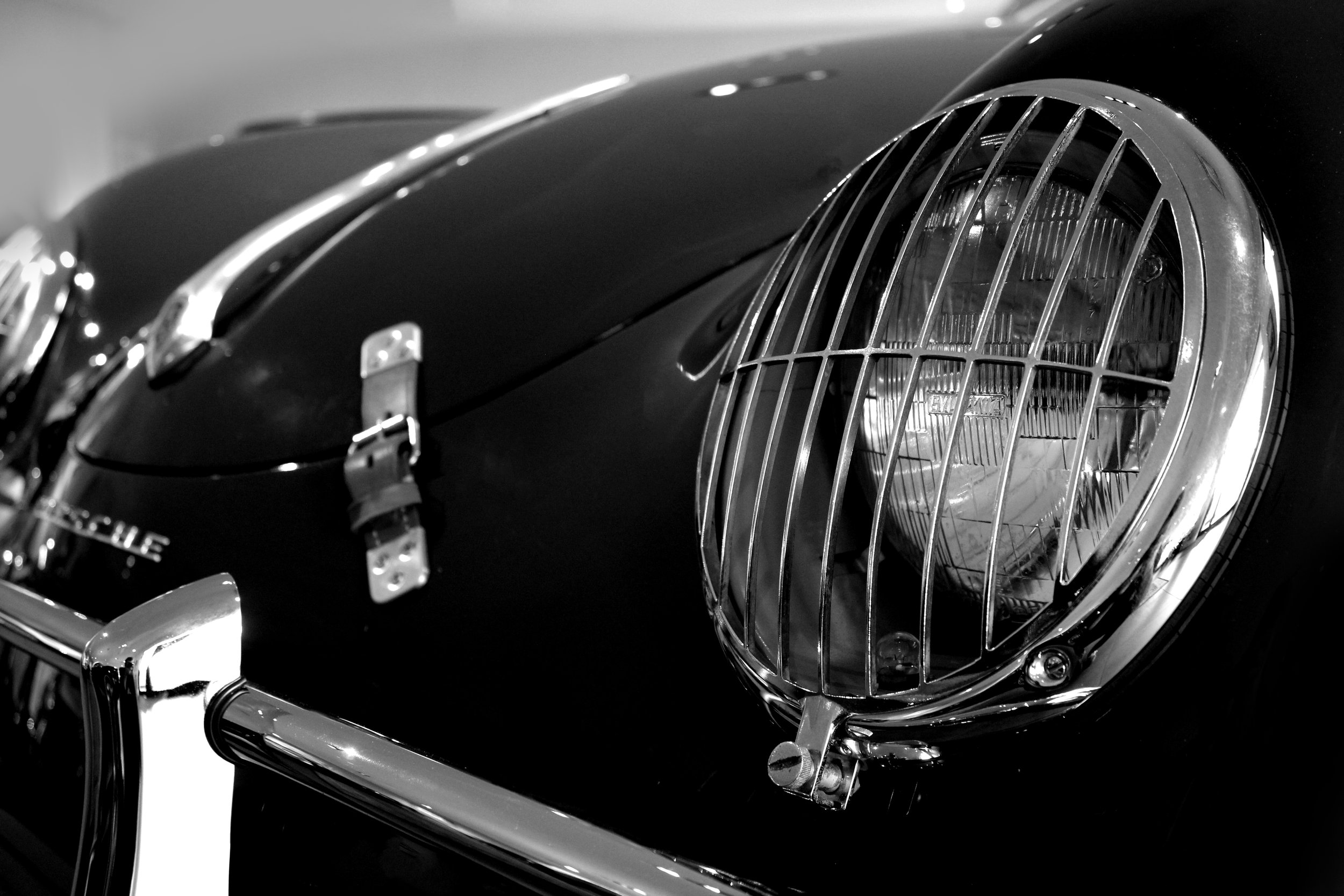No Substitute for Your Need
There’s something indelibly charming about old-school technology on classic cars. To prevent headlight glass from being struck by rocks and littering racetracks, governing bodies of yesteryear’s racing series mandated thin-gauge wire mesh headlight covers. An even older safety measure was the practice of securing engine covers and various other body panels with leather straps – leather straps! On a stripped-down, single-purpose whip like a Porsche 356 Speedster, it conveys an elegant simplicity. Speedsters had to make do with just 55 horsepower, and you don’t wind up with a 1,840-pound curb weight by adding needlessly complicated solutions. So you get mesh headlight covers and leather straps.
In the decades to come, the headlights on Porsche racers would suffice with criss-crossed electrical tape. Later still, they would appear with plastic headlight covers. Improving technology would meet that need in the decades to come, but the need itself wouldn’t change.
When faced with explaining the totality of humankind’s need for God, renowned author and self-taught theologian C.S. Lewis offered a car analogy. No one really associates him with cars – in fact, he may have actively disliked them – but when he wanted to convey the irreplaceable need for God and God only, he chose a car analogy:
“A car is made to run on gasoline, and it would not run properly on anything else. Now God designed the human machine to run on himself. He himself is the fuel our spirits were designed to burn, or the food our spirits were designed to feed on. There is no other.”
This need isn’t aesthetic, or even purely functional, like needing a safety mechanism like hood straps so a car can continue to run in circles. It’s total, irreplaceable, and essential, like fuel. There is no substitute. The need for God’s presence in your life cannot be satisfied by anything else because it wasn’t designed to accept anything else.
This hasn’t stopped humans from trying, though. Attempts to satisfy the need for God with something else is an old tradition, dating back to the original sin in the Garden of Eden. Today, it takes on a variety of forms. To satisfy the need for God’s unconditional acceptance, perhaps you’ve tried to fill yourself with popularity and social status. To satisfy the need for spiritual fulfillment, perhaps you’ve tried to fill yourself with infatuation with a significant other. To satisfy the need for God’s correct judgment, perhaps you’ve filled yourself with anger toward an opposing political party. And (this one stings), to satisfy the need for fascination with God’s wisdom and intricacy of his Creation, perhaps you’ve filled yourself with an obsession with cars.
So how do you practice fulfilling your need for God with God? A good place to start is learning how God meets these needs. The Bible records hundreds of cases of God providing every need for his people, while his people continually ignore it. Learn from their mistakes, and then look in your own life for God’s provision. Sometimes he meets your needs with something you’ve idolized, and all you need now is a recalibrated appreciation for the giver instead of an obsession with the gift. God knows you won’t get it right 100% of the time. He knows that your greatest need is for unconditional forgiveness, and there’s no substitute for that.
Elegant simplicity was the design brief for the Porsche 356 Speedster, until the Carrera Speedster came along. With a devilishly complicated quad-cam engine that also saw competition duty in legends like the 550A Spyder and 904 GTS, this 110-horsepower Speedster was essentially an oxcart with a Rube Goldberg machine out back. In the decades to come, Porsche would perfect the tricky balance of racecar-like simplicity and engineering excellence. For racing success and sports car sales, it would become their greatest need.

